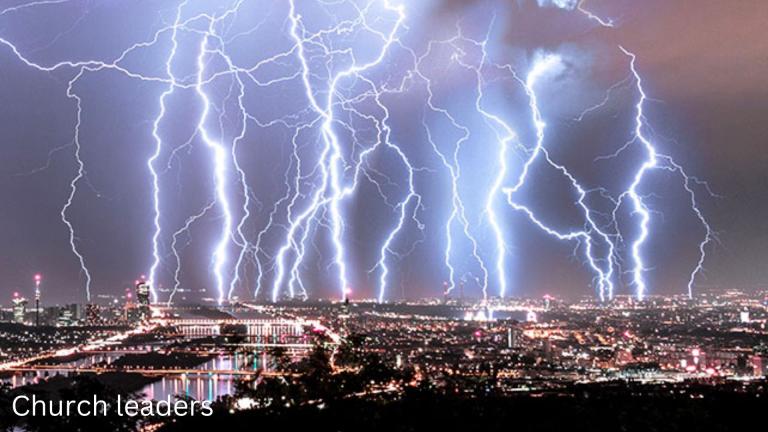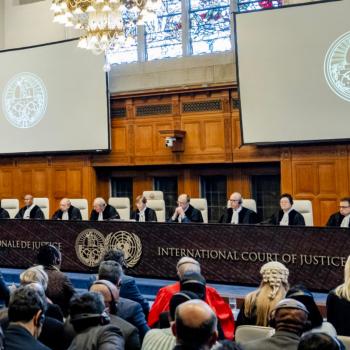 In my last post, I asked if lying is always a sin. In raising this question, I was trying to draw out the fact that the God of Scripture is loving and just, and yet the church in the West has seemingly focused more on His wrath than on His grace.
In my last post, I asked if lying is always a sin. In raising this question, I was trying to draw out the fact that the God of Scripture is loving and just, and yet the church in the West has seemingly focused more on His wrath than on His grace.
I closed that post by noting, “We know that God desires mercy and yet we have established a society predicated on justice.”
In this week’s post, which is actually an excerpt from my upcoming commentary on the book of Revelation, I wish to address a similar question: “Is God’s wrath too harsh?”
I raise this question in light of the lurid warning in the message to the church in Thyatira,
“But I have this against you, that you tolerate the woman Jezebel, who calls herself a prophetess, and she teaches and leads My bond-servants astray so that they commit acts of immorality and eat things sacrificed to idols. ‘I gave her time to repent, and she does not want to repent of her immorality. ‘Behold, I will throw her on a bed of sickness, and those who commit adultery with her into great tribulation, unless they repent of her deeds’” (Rev 2:20-22).
These words of impending judgment on “Jezebel” (certainly not her real name) and her children (which most certainly refers to her followers and not actual children) seem overly harsh.
This raises the question as to how we might reconcile such words with my conviction that the biblical story, including the book of Revelation, is a love story.
In response, I would begin by noting that the concept of God as One who holds over the heads of humanity the threat of His anger—unless they repent—is fraught with difficulties.
First, the biblical story consistently indicates that God delays His just judgment in order that humanity may have time to repent.[1] My very loose paraphrase of the warning to the church in Thyatira affirms, “I gave her time to repent but she did not want to. I sure hope you act more wisely and use the time I am giving you to repent” (2:21).
Second, throughout Scripture, God’s wrath may be understood in terms of His giving humanity over to the very things they have been asking for. God’s wrath, in other words, is often God allowing humanity to experience the inevitable consequences of our actions.
Thus, in Ezekiel 39, the prophet notes,
“The nations will know that the house of Israel went into exile for their iniquity because they acted treacherously against Me, and I hid My face from them; so I gave them into the hand of their adversaries, and all of them fell by the sword” (Ezek 39:23).
The implication is that by rejecting the Lord the Israelites were expressing their desire to serve other gods. God, therefore, hid His face from them. The end result was that the Babylonians, the very ones whom the Israelites desired to serve, killed them.[2]
Paul, similarly, argues this in Romans 1. He begins with the affirmation that “the wrath of God is revealed from heaven” (Rom 1:18). Then he states that “even though they knew God, they did not honor Him as God or give thanks” (Rom 1:21). Paul then states three times that “God gave them over” (Rom 1:24, 26, 28).
Third, the threats of punishment for those who fail to repent should be viewed as an act of love. God is aware of what the inevitable consequences of our sins will be and He intervenes by warning us and urging us to repent.
The message to the church in Laodicea affirms, “I correct and discipline those whom I love; be zealous, therefore, and repent” (Rev 3:19). Christ knows what is best and desires what is best for them.[3] It is not God’s desire that they suffer.
Finally, God is concerned not only with individuals but also with the nations.
Central to the Scriptures and the book of Revelation is the fact that the people of God are the means through whom God wills to make Himself known to the nations.
This is why God was so displeased with the people of Israel when they followed other gods. They were called to be a light to the nations (see Isa 42:6; 49:6).
When the people of God fail to follow the covenant, they not only brought destruction upon themselves, but they fail to make God known to the nations.
As the prophet Ezekiel says,
When they came to the nations where they went, they profaned My holy name, because it was said of them, ‘These are the people of the Lord; yet they have come out of His land.’ But I had concern for My holy name, which the house of Israel had profaned among the nations where they went (Ezek 36:20-21).
As I say all of this, I do not intend to suppose that God never directly inflicts His wrath upon individuals or nations. Though a lot more could be said and perhaps should be, my point here has been to simply note that there is not an inherent inconsistency between the love of God and the wrath of God. In most instances, what we deem as God’s wrath isn’t wrath. It is simply God allowing us to suffer the fate of our own poor choices.
Our goal is to keep these posts free of charge. I do not intend to ever hide them behind a paywall. I can only do this if those of you who have been blessed by them and can afford to give ($5, $10, $25, or more/month) do so. You can give a tax-deductible contribution by following this link.
Please share this post and let others know about determinetruth.
If you wish to view this blog on your smartphone through the Determinetruth app simply download the “tithe.ly church” app on your smartphone and insert “determinetruth” as the church name you wish to follow. Once it is loaded, simply click on the “blog” icon and it will automatically load.
If you would like to have Rob speak at your church or organization in person or via zoom, please let us know by filling out the contact info on the Contact me tab on this site.
[1] This theme runs through the OT as well. After all, the Adam and Eve story includes the fact that they did not die the moment they ate the fruit but were only expelled from the Garden. Indeed the died later. But the fact that they were spared from immediate death may well be evidence of God’s mercy. The delay in their death provided time for repentance.
[2] Now we could debate from here to eternity whether or not this is God’s doing or not. Surely, if God is sovereign, then He is responsible for their fate and we might affirm that God’s wrath came upon them. I do not intend to deny that here. I am affirming that at the same time, we would do well to recognize that God in His sovereignty turns us over to suffer the consequence of our own actions.
[3] This is similar to how parents often aim to help their children. For, just as a parent corrects their child because they love them, so God corrects those whom He loves. The parent’s goal is to teach the child that there is a better way to behave. As the book of Proverbs says, “Discipline your son while there is hope, and do not desire his death” (Prov 19:18).

















